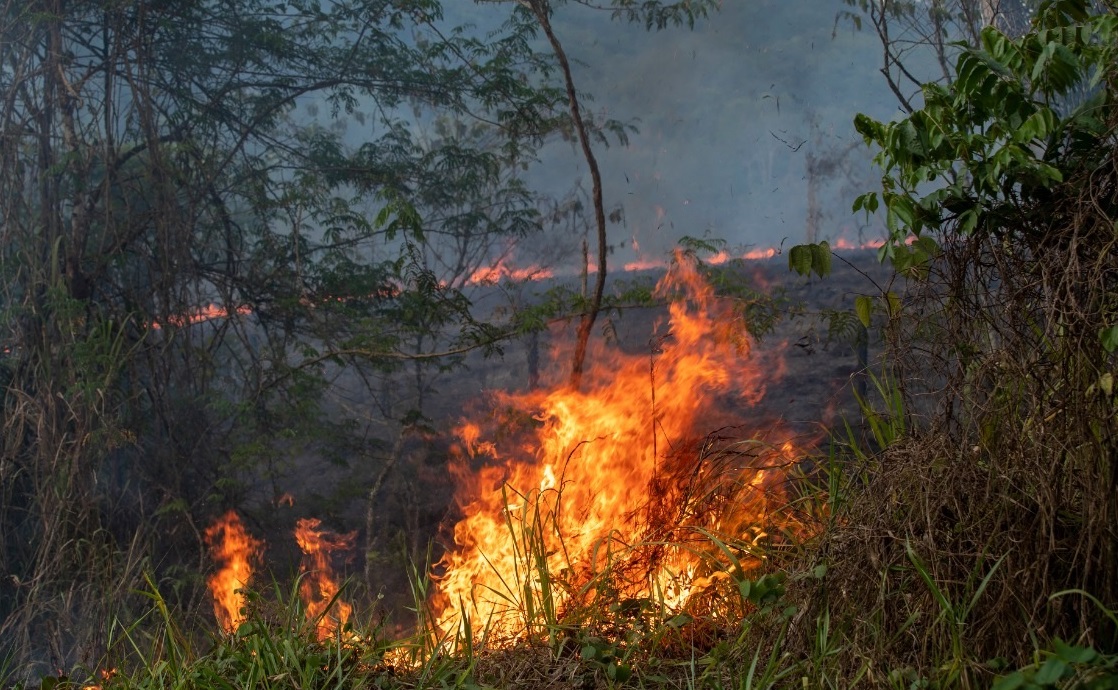Banco do Brasil and BNDES are the Brazilian financial institutions with the highest investments in forest-risk companies, according to a study launched this Tuesday (Sept. 1st) by the international coalition Forests & Finance, of which Repórter Brasil is a member.
Banco do Brasil is by far the largest provider of credit to commodity companies – the main drivers of deforestation in the country. It loaned US$ 30 billion between 2016 and 2020, mostly through rural credit.
In the same period, BNDES was the largest provider of investments to forest-risk companies, with US$ 3.8 billion in April 2020. More than half of that amount went to the beef sector, followed closely by the pulp and paper industry.
Taking an international approach to the issue, the study reveals that the largest global banks have given US$ 154 billion in loans to companies that produce and trade commodities in the three areas with large tropical forests in the world – Brazil, Southeast Asia and Central and West Africa.
In addition to the study, the Forests & Finance Coalition also provides a new free database that monitors credit flow in the world and can be searched. Its goal is to increase transparency and put pressure on financial institutions to be more rigorous about their clients at a time when the forest fire season seems more devastating than that of 2019.
“Global banks and investors are knowingly financing the agribusiness giants that are fueling the fires,” Merel van der Mark, Coordinator of the Forests and Finance Coalition. In addition to Repórter Brasil, the Rainforest Action Network, TuK Indonesia, Profundo, Amazon Watch and BankTrack are part of the group.
Deforestation has almost doubled in the world in the past ten years, despite several industry-based and multilateral commitments to zero deforestation. In 2019, it reached 11.9 million hectares. Forests are destroyed mainly to produce commodities such as meat, oil palm, pulp, rubber, soy, and timber.
According to the data available, credit to commodity industries has generally increased by 40% since the Paris Agreement was signed in December 2015 to contain global warming. In April this year, just before the ‘fire season’ began in the Brazilian Amazon, investors held US$ 37 billion in bonds and shares of commodity companies.
“Despite the financial sector’s commitments to the Sustainable Development Goals and the Paris Agreement, their pursuit of profits are driving us toward a climate and public health disaster,” Merel criticizes. According to the United Nations Environment Program, deforestation and related loss of wildlife habitat are critical, even when diseases such as Covid-19 emerge.
The study shows that only 15 banks account for about 60 percent of the US$ 154 billion in credit granted to companies at risk of causing deforestation since the Paris Climate Agreement was signed. Eight of those banks are signatories to the UN Principles for Responsible Banking, which include a commitment to align banking operations with the Paris Agreement and the Sustainable Development Goals, including SDG 15 to “halt deforestation [and] restore degraded forests” by 2020.
In terms of origin of the loans, banks in Brazil, China, Indonesia, Malaysia, the United States and Japan accounted for the largest financing flows. These findings illustrate the lack of regulations and corporate policies needed to align the financial sector with global environmental and social priorities.
Repórter Brasil asked Banco do Brasil and BNDES to comment on their respective risks of causing deforestation. Banco do Brasil sent the following note:
“Banco do Brasil is the world’s most sustainable financial corporation according to Corporate Knights’ Global 100 Ranking published at the World Economic Forum in Davos in 2019 and 2020. BB is also the best Brazilian financial institution in the New York Stock Exchange’s Dow Jones Sustainability Index (DJSI) and it is listed in the main global sustainability indexes.
Such recognition reflects BB’s strict enforcement of its socio-environmental responsibility policy as well as its sustainability guidelines for providing credit, which can be found here.
Banco do Brasil is a reference in sustainable credit, including for agribusiness, and plays its role in fostering productive sectors, fully complying with environmental legislation, monitoring social impacts of business, and using the best corporate governance practices.”
Repórter Brasil is still waiting for a statement from the BNDES, which will be published as soon as it is received.


